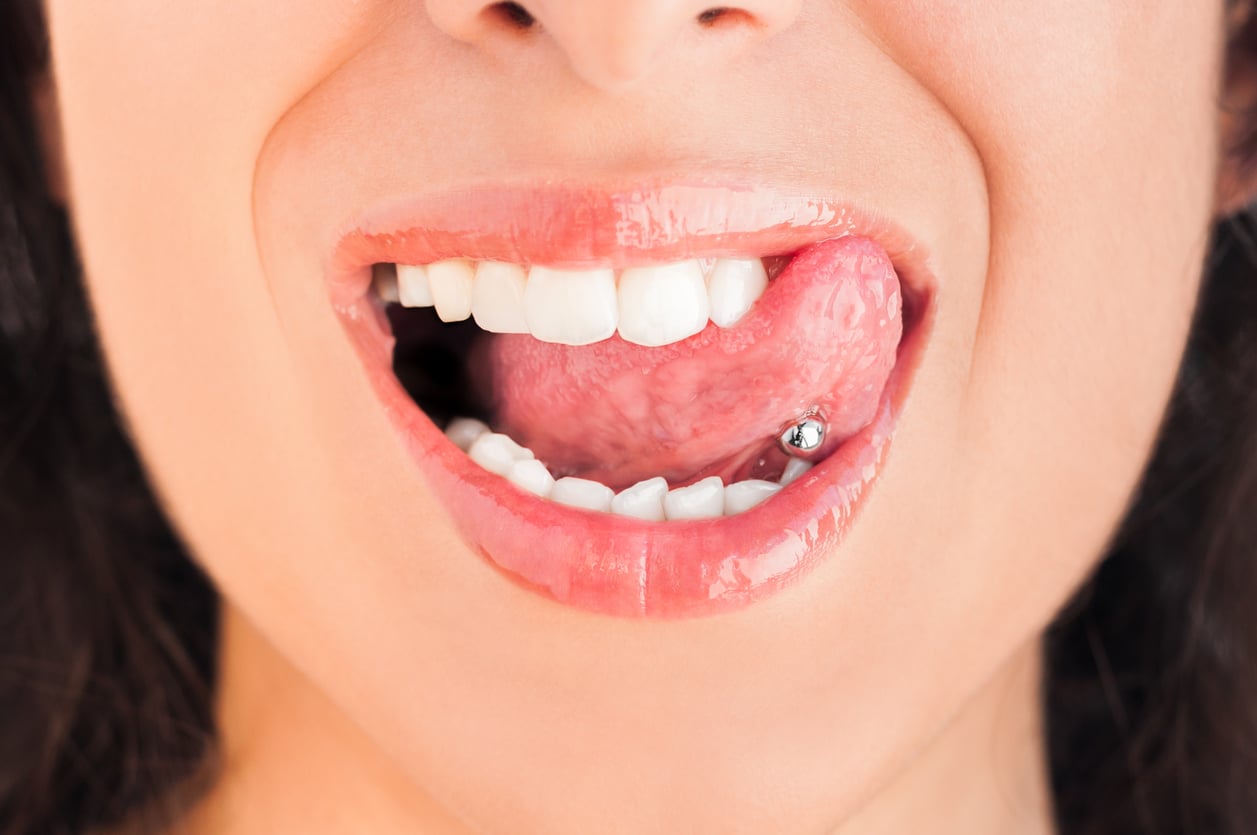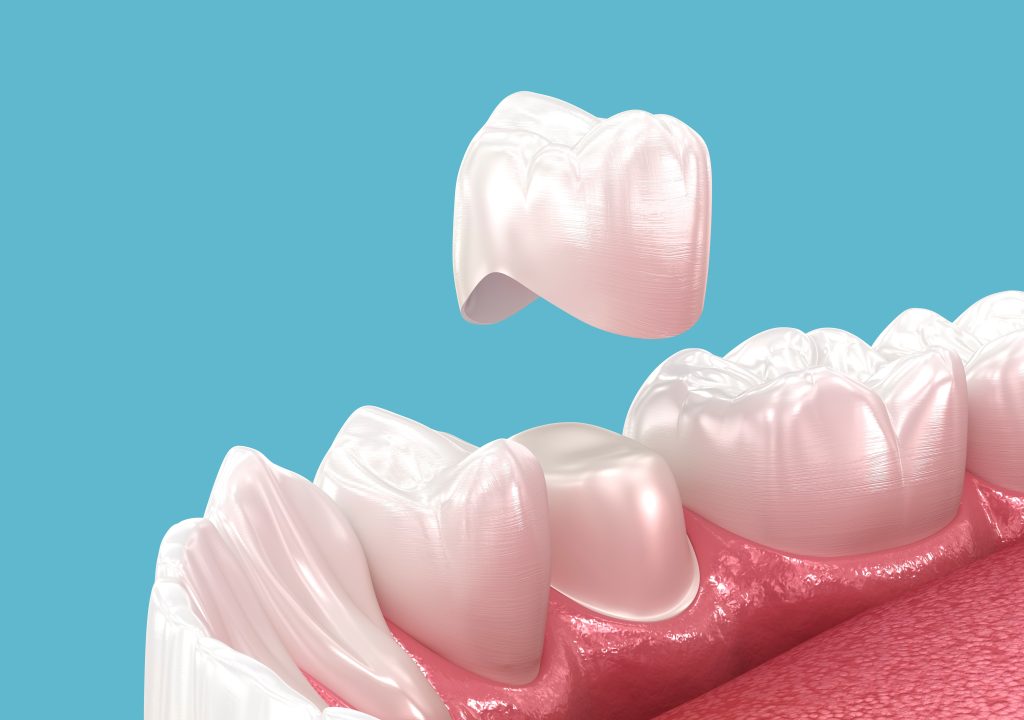Our dentists at Salmon Creek Family Dentistry understand that there are many reasons why patients choose to get an oral piercing. Whether for self-expression or a matter of style, tongue and lip piercing have seen an uptick in popularity in recent years. Unfortunately, few patients think about the potential damage a piercing may have on their oral health before having one placed.
Tongue piercings can significantly impact your oral health, which may not be obvious. Let’s look at some of the health risks and potential complications our dentists at Salmon Creek Family Dentistry see due to patients receiving an oral piercing.
Types of Oral Piercings
The most common type of piercing our dentists at Salmon Creek Family Dentistry see patients get is the midline tongue piercing. The tongue can be pierced twice in vertical lines known as “venom Bites.” The tongue’s tip can even be pierced horizontally using a curved barbell.
The upper and lower frenulum are popular piercing spots, as is the labret piercing, which is done under the bottom lip.
Each of these locations presents a slightly different oral health risk, as well as other potential complications caused by the piercing process. These issues include:
- Abscess
- Swelling
- Infection
- Drooling
- Hypersalivation
- Nerve damage
- Allergic reaction
- Excess bleeding
- Cleft tongue
- Trouble chewing or speaking
- Obstructed airway
Even after the initial wound has healed, patients with oral piercings still face various long-term health risks. These risks can include:
Damaged Teeth. Playing with oral jewelry, running a stud back and forth across your teeth, or accidentally biting down on a piercing can cause a tooth to chip, crack, or break. Fillings are at a higher risk of breaking if constantly hitting against a piercing.
Having a hard metal object constantly rubbing up against tooth enamel can cause your teeth to wear down, making them more prone to breaking or cracking. Eroded tooth enamel also makes teeth more susceptible to plaque, increasing the risk of cavities.
Gum recession. Your gums don’t like a hard metal object in the mouth any more than your teeth. If a piercing is placed too close to the gums, the constant rubbing can lead to gum recession. Studies have shown that 44 percent of patients with oral piercings experience gum recession, while only 7 percent of patients without a piercing are likely to develop the issue.
When gum recession becomes severe, a gum graft may be needed to save the tooth. If left untreated, gum recession can lead to permanent tooth loss.
Gum disease. Studies have also shown that patients with a piercing have a higher risk of gum disease. The mouth acts as the gateway to the body and the primary entry point for the types of bacteria that harm your health. Chronic inflammation is the root cause of many different types of systemic diseases. Even gingivitis can have a significant impact on your health if left untreated.
Endocarditis. Patients with moderate- to high risk of cardiac health problems could be in serious jeopardy from an oral piercing. The holes that piercings make provide an opening for bacteria to enter the bloodstream and travel to the heart. Once the bacteria have settled in the heart, they can cause inflammation of the heart valves. This inflammation can lead to an increased risk of a heart attack.
Keeping Your Smile Healthy
For patients who understand the risk but still want an oral piercing, you can take a few steps to avoid some of the adverse effects.
- Keep the site of your piercing clean. Rinse the area following every meal and rinse daily with an antimicrobial mouthwash.
- Avoid playing with your piercing to avoid damaging your teeth.
- Frequently check the tightness of your oral fixture to lower the risk of it breaking.
- Practice quality oral hygiene daily, including flossing.
- Make and keep regular appointments to see our dentists at Salmon Creek Family Dentistry.
- Inform our doctors at the first signs of redness, swelling, or infection.







